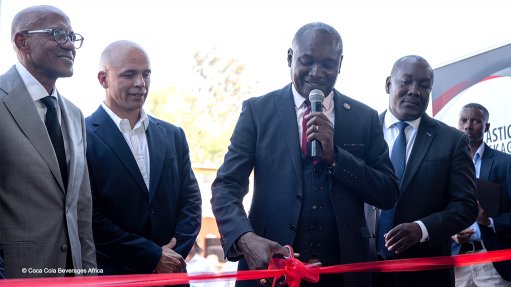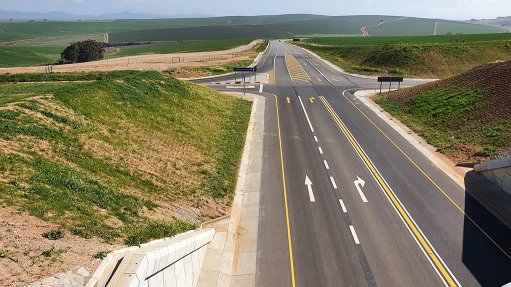How to improve governance, service delivery and combat corruption now that the elections are behind us
This article has been supplied as a media statement and is not written by Creamer Media. It may be available only for a limited time on this website.
It is widely held that the South African political landscape will be dominated by coalition governments in the foreseeable future.
For the first time in the history of the country’s young democracy, the ANC’s support fell below 50% in November’s local government elections, paving the way for minority governments comprising myriad parties to run municipalities.
Equally noticeable was a record low voter turnout at the polls, a strong indication that millions of South Africans have lost faith in the political system to represent their interests.
After years of state capture, corruption and appalling service delivery, dejected citizens no longer feel there is any point to making their mark for candidates, believing that in doing so they are merely perpetuating the rot that has blighted the corridors of power.
However, the coalition era does present a greater opportunity for the electorate to determine who represents it. The dominance the ANC and DA have enjoyed in the past three decades has been severely eroded, to the point that community-born parties have risen to assume kingmaker status in many municipalities.
Many of these smaller parties have won over voters based on their promises to stamp out corruption and ensure basic services are rolled out to constituents – often issues that their members themselves have experienced first-hand.
Coalition governments will do well to note how an apparatus traditionally used in the private sector is already helping government improve performance and most importantly, address the ills that have caused South Africans such heartache.
The International Organisation for Standardisation (ISO) range of standards indicates the tools required - policies, process flows, procedures, work instructions, forms reports and statistical analysis, for example - to guide an organisation to fulfill its goals, targets and objectives.
By implementing applicable standards, the organisation inherently creates a culture of accountability – something that has been woefully lacking in South African governance.
According to Muhammad Ali, managing director and lead auditor of South African ISO standards training and implementation specialist WWISE, there are a number of standards that are perfectly suited to improving government systems and operations.
In fact, ISO 18091, which focuses on sustainable development for local government, is the first ISO standard directed at the public sector that provides guidelines for the implementation of ISO 9001 in local government.
At the heart of ISO 9001: 2015 is customer satisfaction.
It also makes provision for post-delivery activities, enabling organisations to identify which areas need to be improved.
The South African Bureau of Standards recently published a national equivalent of the ISO 18091 standard. It believes its implementation can significantly improve governmental performance through monitoring and evaluation mechanisms.
A number of other standards can be applied to further enhance government performance, Ali says.
“Another very useful standard is ISO/TS 17582: 2014. This applies to the election period, including pre- and post-election activities and processes,” he explains.
Several government organisations have already benefited from implementing ISO standards in their operations, including the Department of Licensing and Consumer Affairs (DCLA), which transitioned from ISO 9001:2008 to ISO 9001:2015, and the state-owned South African Forestry Company Limited, where ISO 9001:2015 has been applied.
In both instances, the public entities came to better understand the risks that needed to be taken into account, while employees were given a clearer picture of their role in quality controls.
“The internal audit and transition training we provided to the DLCA team created clarity on the changes and understanding of the requirements and approach to a process, the risk, and the governance-based approach of ISO 9001: 2015,” Ali says.
“Our Gap Assessment also provided a set of requirements that DLCA could follow in a structured way to understand the existing gaps so it could conform to the standard. A detailed Corrective Action Plan was implemented.”
Simply by virtue of implementing ISO 9001: 2015, potential for corruption could be identified and eradicated.
One of the most significant government-applicable ISO standards to emerge is ISO 37001, an Anti-Bribery Management System.
The standard is specifically designed to help organisations establish, implement, maintain and improve an anti-bribery compliance programme.
It involves a number of key elements, including establishing a concrete anti-bribery policy, personnel controls and training, risk assessments, due diligence on projects and business associates, financial, commercial and contractual controls, and corrective action and continual improvement.
“In order for standardisation to be implemented effectively, commitment from top management is essential,” Ali says.
“There also needs to be buy-in from everyone in the organisation. In this regard, awareness training is key so that all employees are on board. What really needs to be brought home in the public sector is that change is for the better. Often there is the belief that best practice is already being followed, when that is not the case at all.
“Policies and procedures are all very well and good, but without effective implementation they are nothing more than pieces of paper. There also needs to be improved succession planning and training.”
Once the standards have become part of the organisational culture, what follows will be improved governance, a structured approach to meeting targets and objectives, improved service delivery and greater customer satisfaction.
While implementation of ISO standards in a municipality or government department is not cheap – it can be anything from R350-million and above depending on the Gap Assessment and the infrastructure, work environment and ergonomic changes that may be needed to conform to best practice standards – the cost needs to be measured against how much metros, provinces and the country are losing to corruption, fruitless and wasteful and inadequate service delivery.
To put it into context, a study by Unite 4 Mzansi, an initiative led by the South African Institute of Chartered Accountants and business leaders, found that South Africa lost R1.5-trillion to corruption between 2014 and 2019.
Putting ISO standards in place, even taking into the initial and annual maintenance costs, would significantly bring down that figure in the medium to long term.
Comments
Press Office
Announcements
What's On
Subscribe to improve your user experience...
Option 1 (equivalent of R125 a month):
Receive a weekly copy of Creamer Media's Engineering News & Mining Weekly magazine
(print copy for those in South Africa and e-magazine for those outside of South Africa)
Receive daily email newsletters
Access to full search results
Access archive of magazine back copies
Access to Projects in Progress
Access to ONE Research Report of your choice in PDF format
Option 2 (equivalent of R375 a month):
All benefits from Option 1
PLUS
Access to Creamer Media's Research Channel Africa for ALL Research Reports, in PDF format, on various industrial and mining sectors
including Electricity; Water; Energy Transition; Hydrogen; Roads, Rail and Ports; Coal; Gold; Platinum; Battery Metals; etc.
Already a subscriber?
Forgotten your password?
Receive weekly copy of Creamer Media's Engineering News & Mining Weekly magazine (print copy for those in South Africa and e-magazine for those outside of South Africa)
➕
Recieve daily email newsletters
➕
Access to full search results
➕
Access archive of magazine back copies
➕
Access to Projects in Progress
➕
Access to ONE Research Report of your choice in PDF format
RESEARCH CHANNEL AFRICA
R4500 (equivalent of R375 a month)
SUBSCRIBEAll benefits from Option 1
➕
Access to Creamer Media's Research Channel Africa for ALL Research Reports on various industrial and mining sectors, in PDF format, including on:
Electricity
➕
Water
➕
Energy Transition
➕
Hydrogen
➕
Roads, Rail and Ports
➕
Coal
➕
Gold
➕
Platinum
➕
Battery Metals
➕
etc.
Receive all benefits from Option 1 or Option 2 delivered to numerous people at your company
➕
Multiple User names and Passwords for simultaneous log-ins
➕
Intranet integration access to all in your organisation


















